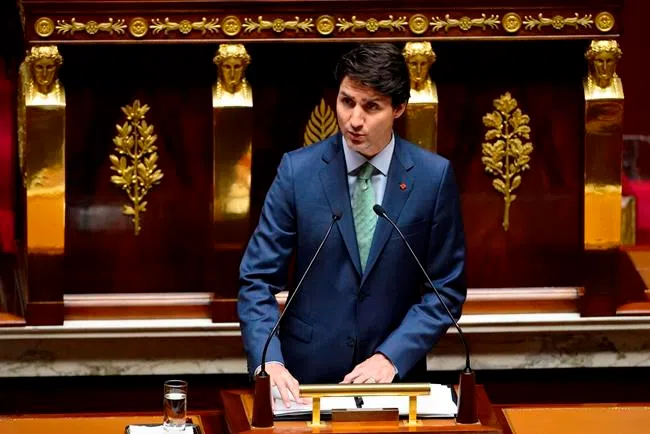
Trudeau addresses France’s National Assembly, touts progressive common ground
PARIS — Prime Minister Justin Trudeau ventured into the heart of French democracy Tuesday in hopes of enlisting his hosts as progressive, like-minded defenders against the onslaught of global perils like climate change, authoritarianism and inequality.
His message — a call to arms of sorts in the face of anxiety and division both at home and around the world — was delivered almost entirely in French, and with Trudeau’s usual rhetorical flair, on the occasion of a Canadian prime minister’s first-ever speech to France’s National Assembly.
Not everyone swooned — especially not nationalist leader Marine Le Pen, and especially not when talk turned to the Canada-EU trade deal.
Tuesday’s speech came only hours after French President Emmanuel Macron, in many ways Trudeau’s political doppelganger, raised many of the same issues at the European Parliament, where he warned about a “European civil war” between democracy and rising authoritarianism.
